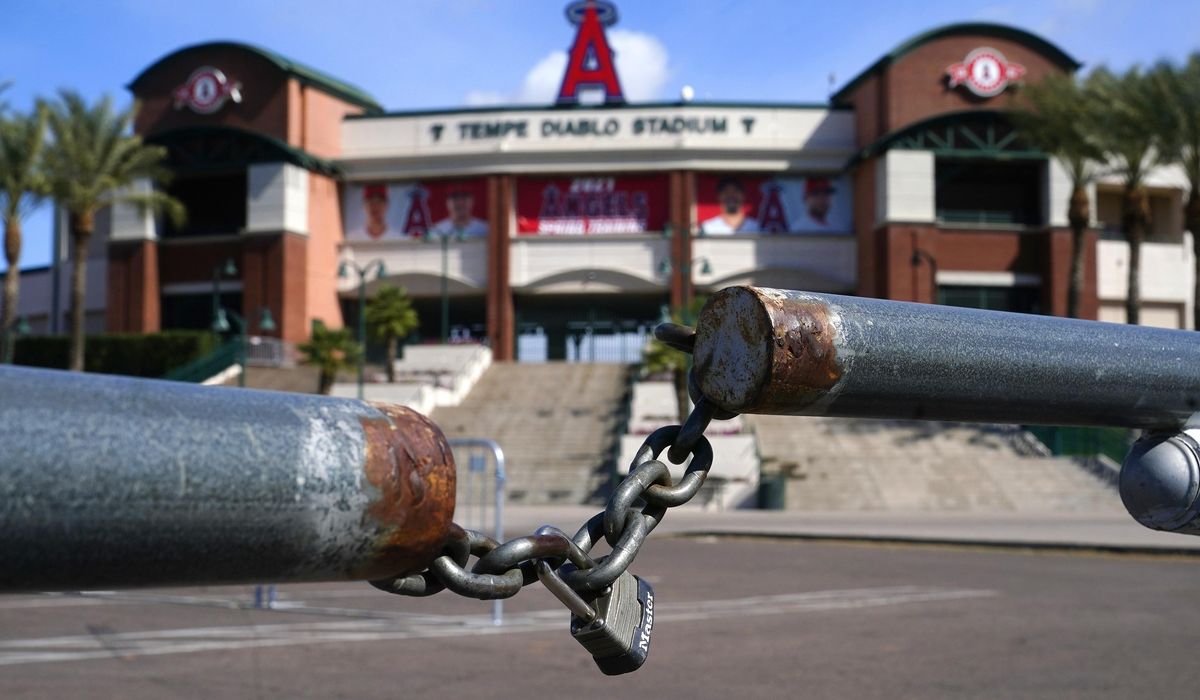
There was a time when the debate about the designated hitter in baseball was as passionate and bitter as the divide over COVID-19 vaccines.
You picked your friends based on whether or not they thought the refusal to adopt the DH by the National League had been handed down from Mount Sinai, or if they looked upon the American League’s embrace of the designated hitter as blasphemy.
Yet without any fanfare or fireworks, Major League Baseball, in negotiations with the Players’ Association, agreed to a universal DH throughout baseball. The National League, after Ron Blomberg appeared at the plate for the New York Yankees 48 years ago as the first DH, has agreed to cave in and have their own designated hitter in union talks with MLB management.
There were no riots, no protests — not even a whimper. There was more debate over mixed nuts in a Super Bowl commercial than the fallout over the approval of the universal DH.
What does that mean? How about the lack of passion for the one-time national pastime?
There is a work stoppage going on in baseball right now — a lockout by the owners — but after the self-inflicted damage to the game over the years, fans can barely muster up their self-righteousness about millionaires fighting billionaires.
Baseball fans expect to be forgotten no matter what side wins or loses. Just let them know when Opening Day starts.
Right now, no one can tell you that.
Pitchers and catchers were supposed to report to spring training this week in Florida and Arizona, but they can’t because they are locked out. They didn’t have to be locked out, but baseball Commissioner Rob Manfred said he felt he had no choice but to do so to force the players to seriously negotiate a new labor agreement. “It’s not a good thing for the sport,” Manfred said in early December.” We took it out of a desire to drive the process forward to an agreement now.”
The Major League Baseball Players Association, under the direction of former player Tony Clark, said the lockout was just an effort to create the illusion of wanting a new deal done by the owners.
“From the outset, it seems as if the league has been more interested in the appearance of bargaining than bargaining itself,” Clark said in response to the owners’ lockout. “Contrary to the statement that imposing a lockout would be helpful in bringing negotiations to a conclusion, players consider it unnecessary and provocative. This lockout won’t pressure or intimidate players into a deal that they don’t think is fair.”
Fair. There’s no fair in baseball. After nine work stoppages, either through players strikes or owners lockouts, fans have come to realize there is no fair for them. There are only raised ticket prices and hijacked concession costs.
Fans are almost numb to it now — or indifferent.
For those who do care, the issues of contention are the competitive balance “luxury” tax that penalizes owners for spending too much on payroll; revenue sharing; arbitration; minimum salaries; service time, and an international draft, among other points of contention.
The owners’ latest proposal presented last weekend left the players “unimpressed” and that the two sides are still extremely far apart on an agreement, according to ESPN.
That puts the start of the regular season in jeopardy. The Washington Nationals, who were scheduled to have pitchers and catchers report Thursday, are slated to open on March 31 in New York against the Mets. Their first home game is supposed to take place on April 4 against the Philadelphia Phillies at Nationals Park.
All that is in question now.
Manfred said that any lost regular-season games due to the work stoppage would be “disastrous.” He’s right. It won’t take much for some fans to move on to some other distraction and leave baseball behind. There are options today, so many options, and again, we are not talking about broken hearts, as in the past. It would simply be a choice of diversions, nothing more.
This is not a death of baseball column. The game is still very much alive on the sports landscape. They drew 69 million fans to Major League ballparks before COVID-19 in 2019 and 48 million to minor league stadiums. Revenues for Major League Baseball were $11 billion in 2019. Though national television ratings are a fraction of what they used to be decades ago, the game dominates local TV ratings, often the top-rated cable programming in their respective markets.
No, fans will still participate, and many still will whenever this latest work stoppage ends. But will they care?
I mean, the DH, man. The DH. Where’s the outrage?
⦁ You can hear Thom Loverro on The Kevin Sheehan Show podcast.








